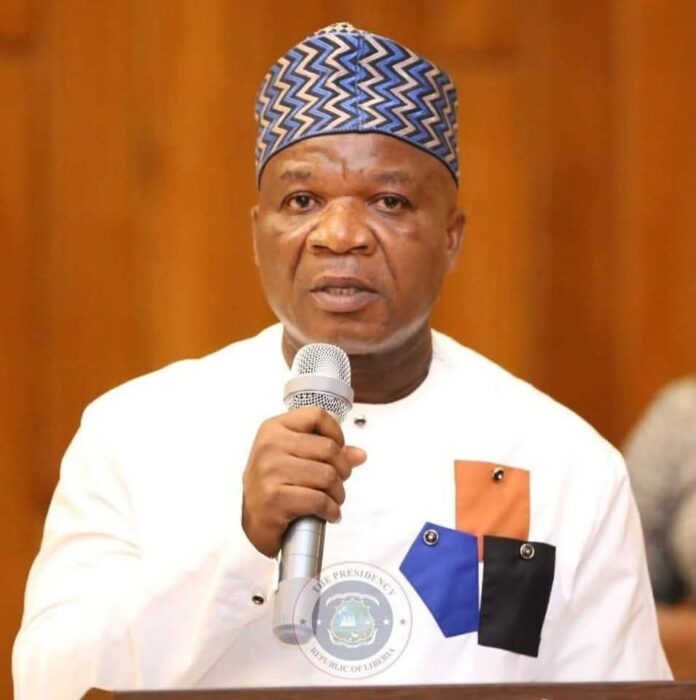As Liberia prepares to celebrate its 178th Independence Day, Chief Imam Ali Krayee has issued a measured yet sobering statement regarding the growing unrest surrounding a recent altercation between a Muslim woman of Fulani descent and members of the Liberia National Police (LNP). While calling for calm, the Chief Imam expressed deep concern over the divisive reactions the incident has sparked, warning that Liberia may be “sitting on a time bomb” if tensions are not carefully defused.
His remarks, published following a meeting with LNP authorities, reflect a growing unease within the Muslim community and broader civil society over what many perceive as religious and ethnic fault lines becoming dangerously exposed in public discourse.
A Call for Patience and Prayer
In his statement, Chief Imam Krayee explained that his initial response to the situation was intentionally restrained and non-judgmental. The goal, he said, was to allow space for a proper investigation while helping to calm rising tempers. Despite his public silence, he made it clear that religious leaders are closely observing the unfolding developments.
“We await the outcome of the police investigation before speaking definitively,” he stated. “But from what I have heard and read so far, I’m afraid we may be sitting on a time bomb.”
As the country celebrates its independence, Krayee appealed to all citizens — particularly believers — to pray for peace and national unity, emphasizing that the current moment demands reflection and restraint, not retaliation or inflammatory rhetoric.
Ethno-Religious Divides Surface
Perhaps most striking in the Chief Imam’s statement is his candid reflection on how public interpretations of the incident appear to follow religious and ethnic lines. He observed that the overwhelming majority of individuals siding with the woman involved are Muslims, particularly from the Fulani ethnic group, while those supporting the police officer tend to be non-Muslims — a pattern he found deeply troubling.
“People watch the same video and come up with contrasting interpretations and conclusions based largely on their religious and/or ethnic backgrounds,” Krayee noted. “Isn’t that revealing and troubling?”
This observation points to a deeper issue that many analysts have echoed in recent days — that Liberia’s fragile social cohesion is being tested, not just by the incident itself, but by the narratives emerging around it. While the country has made strides in rebuilding post-conflict, simmering tensions over identity, marginalization, and institutional bias continue to challenge its democratic progress.
Measured Engagement with Authorities
Despite these concerns, the Chief Imam reaffirmed his commitment to dialogue. He acknowledged ongoing engagement with the LNP and emphasized that his office is working to help mediate the situation, even as community frustration remains high.
“When the dust settles and the result of the investigation is out,” he said, “we will address the situation appropriately — taking into consideration the historical, social, religious, and other contexts within which such unfortunate incidents take place.”
His approach reflects a broader philosophy of religious leadership rooted in patience, wisdom, and context-sensitive advocacy. While some have criticized religious leaders for not taking more immediate and vocal stances, Krayee explained that careful observation and timing are essential to maintaining credibility and ensuring that any intervention is constructive, not inflammatory.
Broader Implications
The Chief Imam’s warning comes as a reminder that Liberia’s peace is still delicate. Though the country has remained relatively stable since the end of its civil war two decades ago, episodes like this underscore how quickly divisions can reemerge if grievances — real or perceived — are not addressed with transparency and sensitivity.
His final appeal, calling on “real believers in God” to stand in prayer and unity, is both a spiritual plea and a political one. In a time of uncertainty, it suggests that faith-based communities have a critical role to play — not only in advocating for justice, but also in safeguarding Liberia’s hard-won peace.
As the nation celebrates its independence, Krayee’s message may serve as a vital caution: without deliberate efforts to bridge divides and uphold fairness, unity may remain an elusive ideal.



